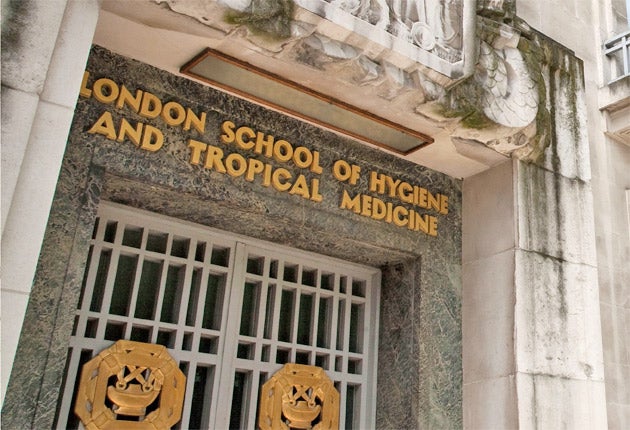Just <u>one</u> university will escape funding cuts

All bar one of England's 130 universities had their spending slashed for the next academic year yesterday.
Hardest hit by the funding cuts were the newer universities – many of them ex-polytechnics – while the most prestigious universities such as Oxford and Cambridge escaped relatively lightly. Only one, the London School of Hygiene and Tropical Medicine, saw its budget increase in real terms – it went up by 2.2 per cent.
In straight cash terms, there were five winners – including three from the Russell Group (which represents 20 of the country's leading research institutions). They were Oxford, the London School of Economics and Imperial College London. The other university, not from the Russell Group, was the Courtauld Institute.
The biggest loser was Bishop Grosseteste University College in Lincoln whose budget fell by 15.8 per cent in real terms.Institutions specialising in the arts also took a hit with the University for the Creative Arts in London seeing a 10.2 per cent real terms cut.
Overall, yesterday's announcement saw 12.6 per cent lopped off the university budget compared with the previous year – reducing it to £6.5 billion. Capital funding was the hardest hit with a 58 per cent reduction in spending. Teaching budgets were cut by four per cent but research only 0.4 per cent.
The cuts will increase the pressure on newer and specialist universities to raise their fees – following in the footsteps of the Russell Group universities.
Professor Les Ebdon, chairman of million+ the university think tank, said: "The cuts in funding for university teaching are serious. The net result is that the wealthiest universities with the most socially exclusive profiles will retain more public funding, while universities which create the most opportunities will receive less funding.".
An analysis of the figures by the University and College Union showed 11 out of the 20 Russell Group members were among the 25 universities to suffer the mildest cuts. By contrast, the worst 25 sufferers include eight members of the million+ group, which includes newer universities.
"Exceptional universities that concentrate on teaching and widening participation have been told today that they are being left to scrap it out in an untried market place," said Sally Hunt, general secretary of the UCU.
"There's a real worry that some universities will not continue to offer excellent courses for the fear that they will not generate enough profit. We risk seeing arts and humanities courses and departments shut down and institutions that focus on widening participation being damaged."
Under the formula agreed by ministers, only science, engineering, maths, technology and some language courses will receive funds for teaching after 2014. Sir Alan Langlands, chief executive of the Higher Education Funding Council for England – which drew up yesterday's budgets, said: "The universities that don't lose out so much are those that benefit from the modest nature of the cut in research funding."
However, he added that budgets could increase in real terms in future with the advent of higher fees.
Universities Secretary David Willetts said income could rise by as much as 10 per cent in cash terms by 2014/5 as institutions got to grips with the new higher fees funding regime.
"These changes will bring a more diverse sector," he added.
Durham yesterday became the fifth university to declare it intends to charge students the maximum £9,000 fee from September 2012. It follows, Oxford, Cambridge, Imperial College London and Exeter.
The least affected...
London School of Hygiene and Tropical Medicine +2.2%
Courtauld Institute of Art -0.1%
Oxford -1%
London School of Economics and
Political Science -1.6%
Imperial College London -2.3%
Cambridge -3%
Staffordshire -3%
University College London -3.2%
Institute of Education -3.4%
University of Surrey -3.4%.
... and the worst affected
Bishop Grosseteste, Lincoln -15.8%
City University, London -10.8.%
Royal Academy of Music -10.3%
University of the Creative Arts, Kent -10.2%
London Metropolitan University -10%
Royal College of Music -9.9%
Cranfield University -9.3%
Heythrop College -9.1%
Birmingham City University -8.8%
Sunderland -8.8%
Join our commenting forum
Join thought-provoking conversations, follow other Independent readers and see their replies
Comments